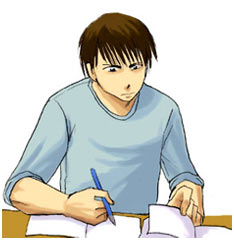My son continues his juken studies, preparing for the difficult high school entrance exams he’ll be taking early next year. Watching my fifteen-year-old son study in his room for hours then attend evening classes at a juku school until 10 pm fills me with pride as a father, and I wonder if the Japan-obsessed teenagers I meet at anime conventions would want to live here if they had to study like that. (Of course he doesn’t have to work so hard, as there are easy-to-enter municipal and private high schools available to him — he’s just pushing himself to get into a high school with an excellent science program since that’s what he’s interested in.) Truth be told, we’ve told him he’s going to the U.S. for college so Japanese high school doesn’t matter that much, yet he wants to go to a good high school even though it means way more work and also leaving all his friends and his girlfriend forever. (Could you make such a grown-up decision age age 15?)
As an outsider to Japanese culture, it’s been interesting for me to observe the year-long process of high school entrance-exam preparation, which is a scaled down version of the “test hell” that high school students wanting to attend university must pass through. One aspect of the process that was strange to me was hensachi, a number determined through a complex calculation of students’ test scores that gives their standard deviation value, essentially is a number indicating their absolute academic ranking. If a student wants to go to Waseda University he’ll need a hensachi number of 72, while a junior high school student looking to attend the famous Ochanomizu University Attached Girl’s High School would need a number of 67. It’s amazing that a person’s life can be determined by a simple number.

My son is studying hard, a lot hardre than I did at his age.















